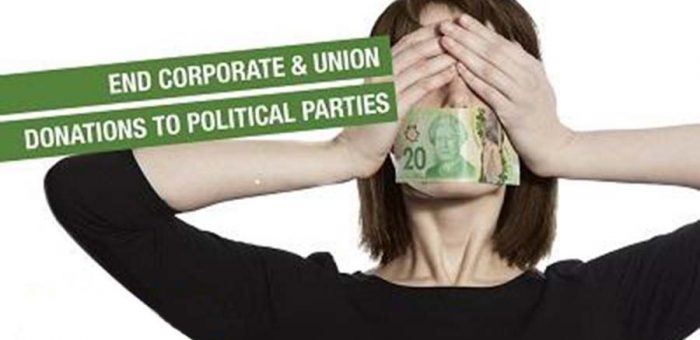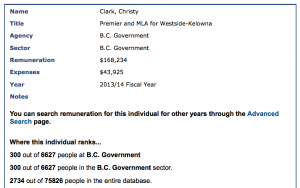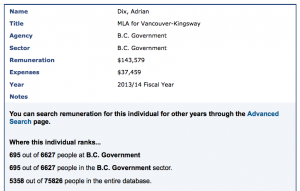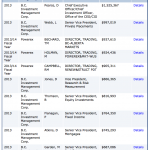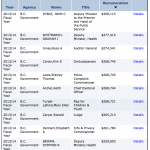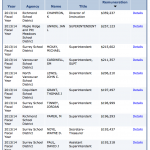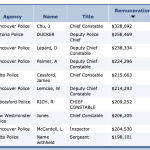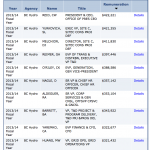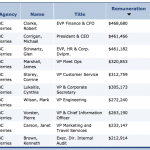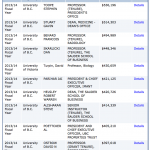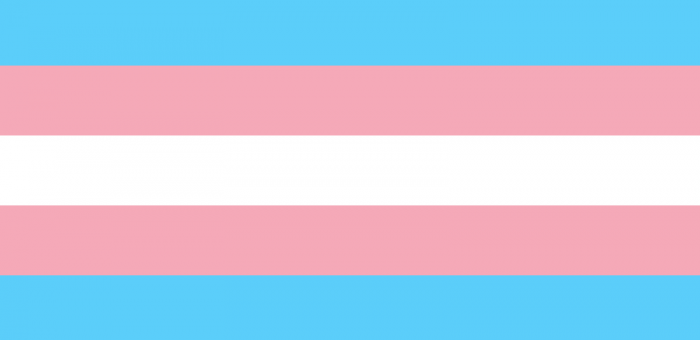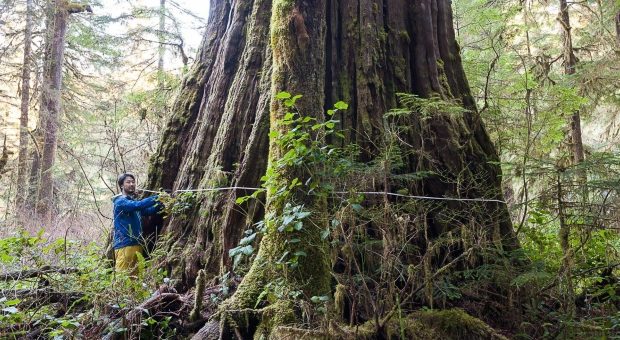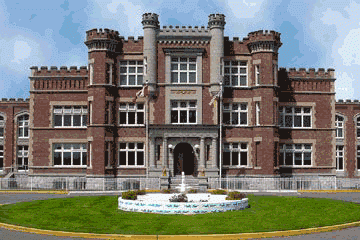Issues & Community Blog - Andrew Weaver: A Climate for Hope - Page 119
On corporate and union donations, and party leader stipends
Introduction
The subject as to whether or not corporate and union donations to political parties should be allowed in British Columbia has been a matter of debate for quite some time. It resurfaced in the headlines over the last few days.
On April 25th the Dogwood Initiative released polling results showing that “86% of British Columbians would support a ban on corporate and union donations before the next election“.
Two days later Gary Mason wrote a story in the Globe and Mail stating:
“The Globe and Mail has learned that Ms. Clark is given between $30,000 and $50,000 a year from the BC Liberal Party for work she does for it throughout the year, including attending fundraising events. “
in the same piece, the Leader of the Official Opposition is quote as saying he’s received reimbursement for a “couple of suits” totaling about $5000 since becoming Leader in 2014.
In a second piece, published later that day after the BC NDP raised the issue in Question period, Gary Mason piled on the evidence as to why he believes party stipends to premiers shouldn’t be allowed. He noted that BC is one of only two provinces in Canada where a provincial premier gets a stipend from the political party (Saskatchewan being the other). And he suggested that since one of the duties of a provincial party leader is to fundraise, a perception could be left that there is a potential conflict.
The Vancouver Sun also picked up the story as did the Tyee a day later. Both these articles included quotes from a letter that MLA David Eby submitted to the conflict or interest commissioner.
Union and Corporate Donations in BC Politics
The BC Green Party, the BC NDP and Independent Member Vicki Huntington (Delta South) have long called for a ban on union and corporations in BC politics. As I’ve noted in numerous speeches in the legislature, unions don’t vote; corporations don’t vote; only people vote. BC is the wild west in terms of its lax rules for political donations. Any person, union or corporation anywhere in the world can donate any amount of money they want to any party any time they want! It leaves one wondering whose interests are being represented.
Let’s take a quick look at some data from the recent financial reporting to Elections BC.
 The BC NDP 2015 Financial Report notes that the BC Government & Service Employees Union donated $92,679.42 to the BC NDP. The United Steelworks Union donated $66,325 to the BC NDP during this period.
The BC NDP 2015 Financial Report notes that the BC Government & Service Employees Union donated $92,679.42 to the BC NDP. The United Steelworks Union donated $66,325 to the BC NDP during this period.
The BC Liberal 2015 Financial Report notes that The Independent Contractors and Businesses Association of BC donated $47,000 to the BC Liberals. KGHM Ajax Mining Inc. donated $29,000, and the New Car Dealers Association of BC also donated $62,225 to the BC Liberals.
The issue of union and corporate donations raises other potentially troubling concerns. A corporation is governed by a board that ultimately serves at the will of the corporation’s shareholders. As such, donations made by corporations are being done so whether or not a shareholder approves of such donations. In essence, shareholders are having their money used to support a political party even if they don’t support that political party. The same is true for union donations. Union members have dues taken from their paycheques to fund the operations of their unions. There may be members of a union who support a party other than the party that the union that represents them is donating to. In both cases, a chosen few individuals are making the decision as to which political party their shareholders/members will support financially.
The Case of Mount Polley
From January 1, 2012 until May 13, 2013 (the date of the last provincial election), the United Steelworkers Union and several of its Locals donated a total of $636,484.34 to the BC NDP. During the same time, Imperial Metals Ltd donated a total of $24,110 to the BC Liberals. Mount Polley Mining Corporation also donated $45,720 to the BC Liberals.
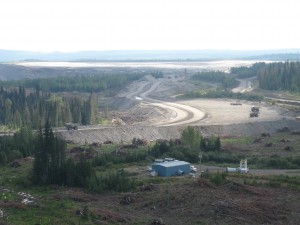 After the tailings pond breach at the Mount Polley mine site, there were a number of newspaper stories pointing out that Imperial Metals, its controlling shareholder, and Mount Polley were all major donors to the BC Liberal Party (see for example a Vancouver Observer article). Imperial Metals was a very minor donor to the BC NDP as well. But as I indicated above, the BC NDP also received substantial donations from the United Steelworkers Union, the union that represents workers at the Mount Polley mine. In fact, Stephen Hunt, USW District 3 (Western Canada) Director, specifically called for USW members to support the BC NDP in the May 2013 election.
After the tailings pond breach at the Mount Polley mine site, there were a number of newspaper stories pointing out that Imperial Metals, its controlling shareholder, and Mount Polley were all major donors to the BC Liberal Party (see for example a Vancouver Observer article). Imperial Metals was a very minor donor to the BC NDP as well. But as I indicated above, the BC NDP also received substantial donations from the United Steelworkers Union, the union that represents workers at the Mount Polley mine. In fact, Stephen Hunt, USW District 3 (Western Canada) Director, specifically called for USW members to support the BC NDP in the May 2013 election.
The purpose of me highlighting the Mount Polley situation is to detail a very real example of why we need to take big union and big corporate money out of BC politics as we have done federally. Government is elected by the people to serve the people of British Columbia. In the case of the Mount Polley incident, the government and the official opposition had to make some very difficult decisions. What, if any, penalties should be implemented? When should the mine be reopened? How should it be monitored? While I am confident that both the government and the official opposition put the best interests of people first and foremost in this case, there will always be those who will question any resulting decision because of the perception that arises when union and corporate money is donated to political parties.
Public Sector Salaries in BC
The Vancouver Sun regularly publishes public sector salaries so its relatively straightforward to track what public sector employers are earning. Below I reproduce the most recently available entries from the 2013/2014 fiscal year for both the Premier (Christy Clark) as well as the Leader of the Official Opposition at the time (Adrian Dix). As you can see from the link images below, Christy Clark’s salary ranked 300th out of 6,627 people within the B.C. Government category; overall she was the 2734th out of 75,826 listed in the database. Adrian Dix’s salary ranked 695th out of 6,627 people with in the B.C. Government category; overall he was 5,358th out of 75,826 listed in the database.
2013/2014 salary for Premier (left) and leader of the opposition (right).
John Horgan took over as leader of the BC NDP in 2014. Publicly available data has yet to make it onto the Vancouver Sun site since Mr. Horgan took office. Nevertheless, the BC Legislature is transparent with respect to MLA salaries.
As of April 1, 2015, an MLA in British Columbia earns $102,878.00. This is the salary I earned as an MLA during the 2015/16 fiscal year. The Premier gets a 90% additional salary increase from this base amount and so was paid $195,468.20 during that time. Her Ministers, the Speaker as well as the leader of the official opposition (John Horgan) receive a 50% additional salary. As such, these elected officials all received $154,317 during the 2015/16 fiscal year.
Despite the fact that I am the leader of the BC Green Party, I do not receive an additional salary from the BC legislature. This is because in order for the BC Green Party to have official party status, we would need four elected members in the legislature. This didn’t stop the New Brunswick and Prince Edward Island legislatures from granting official party status to the New Brunswick and Prince Edward Island Green parties despite that fact that they too had only one MLA elected. Had the BC government seen it fit to grant the BC Greens official party status, I would have a 25% additional salary (for an overall $128,597.50).
A natural question then is who are these other 300 people in the BC government and 2,733 people in BC’s public sector who earn more than the premier? Once more, it’s relatively easy to find that our from the Vancouver Sun’s database. Below I reproduce screenshots of the top 10 salaries in nine specific categories.
Entire Public Sector BC Government Local Government
School Districts Health Authorities Municipal Police
BC Hydro BC Ferries UBC
What should become abundantly apparent is that public sector salaries appear to be out of control in certain sectors. That there are 2,733 people in BC’s public service that earn more than the premier of our province is mind boggling to me. In my view, British Columbia needs to take a very serious and hard look at executive compensation in our public service sector.
The Ethics Receiving a Stipend to Serve as Party Leader
As noted earlier, the topic of union and corporate political donations resurfaced in the headlines last week in concert with public discussion about the appropriateness of political parties giving their leader a stipend for serving in that capacity. The premier has argued that she does two jobs: one as the premier; one as leader of the political party. I have some sympathy for this argument.
While I know that the official opposition made hay over the fact that the premier received a $50,000 stipend for being leader of the BC Liberals, I would argue that it’s somewhat rich for them to try and claim the moral high ground. Leader, John Horgan, admitted to receiving about $5000 in suits from the BC NDP. I have checked the last three years (2013, 2014 and 2015) of public disclosures and do not see any disclosure of this as a remuneration or gift. The same disclosures for the premier identify she received a “Leader’s allowance” in each of these years. Perhaps there is some exemption that I am unaware of or the suits were given in 2016. Either way, I get the sense that it’s a bit like the so-called pot calling the kettle black.
This idiom also applies to the fact that the BC NDP has been calling out the BC Liberals for selling exclusive access to the premier via $10,000 a plate private dinners. Ironically, as Vaughn Palmer points out, when the NDP made such statements Horgan was off to Toronto for an exclusive $5,000 per seat fundraising breakfast. In each case, the names of the attendees were confidential and it’s not as if either the premier or leader of the official opposition have any plans of ceasing these exclusive fundraising activities.
David Eby, MLA for Vancouver Point Grey, submitted a letter to the Conflict of Interest Commissioner on April 27. While I don’t want to prejudge the outcome of Mr. Eby’s complaint, I feel it is important for me to comment on its content. First, the fact that the letter was made public and given out during a press event on the steps of the Office of the Conflict of Interest Commissioner undermines the process itself. I find this guilty until proven innocent public approach to seeking a ruling very troubling. In addition, I am somewhat surprised by the wording of allegations contained in Mr. Eby’s letter. To be frank, I think Mr. Eby has gone too far and I believe his choice of language is most unfortunate and unbecoming of someone of his stature.
Summary
Since becoming the Leader of the BC Green Party in December 2015, I have neither received a stipend nor have I received any suits. I also do not receive the additional salary as leader of a 3rd party in the BC Legislature. Present rules allow for parties to pay their leaders stipends. I have no problem with this. But what I have a substantial problem with is fourfold.
- I firmly believe that we should pass legislation to ban union and corporate donations in British Columbia sooner rather than later.
- There should be no doubt, that the amount of money that the BC Liberals receive from corporations begs the question as to whose interests are being looked after.
- I find it a bit rich for the BC NDP to try and claim the moral high ground as they follow similar practices to what they are criticizing the BC Liberals for. While the magnitudes involved may be different, morally a gift or stipend or union/corporate donation is still the same.
- I frankly think that the premier and the leader of the official opposition are underpaid relative to other senior executives in the public sector.
I look forward to your comments on this piece.
Section 49 of the Community Charter vs the Animal Liability Act
It has been brought to my attention that a number of individuals have concerns that my animal liability act would add to a problem that many dog owners are already trying to resolve. I want to assure everyone that this is not the case.
Section 49 in the Community Charter of BC is the current legislation with which a number of dog owners have significant issue. This part of the Community Charter allows an animal control officer to act on behalf of the interests of the municipality to seize dangerous dogs and apply for a provincial court order for the dog to be destroyed. Under the act, dogs may not be impounded and detained for more than 21 days.
I’ve heard from a few people now that section 49 is unfair to dog owners and that something needs to be done about this piece of legislation. I don’t doubt that there are some instances where section 49 has been abused and family dogs have been destroyed without a lot of evidence. Clearly, there may be some reforms needed to section 49.
However, the bill that I brought in has nothing to do with the seizure of “dangerous dogs”. It does not affect section 49, but it does now make pet owners liable. Currently, if a dog severely bites someone, under section 49 that dog could be seized and destroyed. However, the owner would not necessarily face any charges or be responsible for any damages, and to make matters worse that owner could go and get a new dog the next day.
The evidence clearly points towards irresponsible pet owners being the problem, and right now our legislation only penalizes the dogs themselves. The bill I brought forward contains nothing about when an animal can be seized or the process by which that happens. The bill I brought forward is strictly intended to make irresponsible owners liable for the actions of their pets. It is a framework from which other regulations could be added to solve the problem of dog attacks in a proactive way.
In Support of BC NDP Gender Identity & Expression Human Rights Bill
In question period today I had originally planned to ask government a question concerning the preservation of old growth forests on Vancouver Island. But since the relevant Minister was not available to respond in Question Period today, I had to be nimble and switch direction.
Earlier in the day, the BC Green Party had issued a release (reproduced below) encouraging B.C. Premier Christy Clark to embrace the Gender Identity and Expression Human Rights bill introduced to the Legislature yesterday by BC NDP MLA Spencer Chandra-Herbert. I took the opportunity to see if I could get the Premier to commit to consider bringing in her own bill. Such a bill would modify the Human Rights Code to add explicit language identifying discrimination based on gender identity or expression as unacceptable in British Columbia.
Real leadership acts on good ideas regardless of where they come from. Real leadership has the well being of British Columbians at the heart of every decision. I am convinced that the Premier can be persuaded to make this a priority.
But as I note below, I understand that at times it’s very difficult to actually want to bring forward good legislation and rise above the partisanship when personal insults, vitriol and allegations are hurled back and forth.
The speaker ruled that I referred too extensively to the Private Member’s bill and so called for the next question without compelling an answer from the Premier. While obviously disappointed, I am still hopeful that the Premier will see the wisdom and merit in Spencer’s bill and rise above the catcalling that has been hurled her way during Question Period. After all, it’s 2016.
Question
A. Weaver: Yesterday was a very fine day in British Columbia, as the government introduced the Sexual Violence and Misconduct Policy act. I was very pleased to see the government introduce this, and we’ll be debating it further.
Yesterday was also an important day, because another bill was brought to the Legislature, a bill entitled Gender Identity and Expression Human Rights Recognition Act. In that bill, ten words and a comma were proposed, ten words and comma which will have enormous implications to the acceptance — telling British Columbians that we are an accepting society. It’s essentially putting forward changes to the Human Rights Act.
Madame Speaker: Member.
A. Weaver: Yes?
Madame Speaker: The bill is before the House, currently.
A. Weaver: Correct.
My question to that, with respect, hon. Speaker, is as follows. Will the Premier consider…?
Madame Speaker: Member.
A. Weaver: Hon. Speaker, my question, then, is this: will the Premier introduce legislation along the lines of allowing changes to the human rights code to identify gender identity and expression as reasons not to have discrimination in British Columbia? This will send a signal to British Columbia, an important signal to British Columbia that we are an accepting society.
Madame Speaker: The bill is before the House. Next question; new question.
Additional Question
A. Weaver: I understand, hon. Speaker, in this House that, at times, personal allegations are hurled back and forth, and at times it’s very difficult to actually want to bring forward good legislation and rise above the partisanship. However, when good ideas are brought to this House, surely we can all rise above this partisanship.
Yesterday we had a good idea brought to this House. The good idea that was brought to this House was to say to the people of British Columbia that we will not discriminate against gender identity and gender expression.
My question to the government is: will the government consider introducing their own legislation to actually add words with respect to gender expression and gender identity in the human rights code to ensure that they are not discriminated against?
Madame Speaker: Member, the bill has been received, and first reading has been sent down for second reading.
Next question.
Media Release
VICTORIA, B.C. – Andrew Weaver, Leader of the B.C. Green Party and MLA for Oak Bay–Gordon Head, today encouraged B.C. Premier Christy Clark to embrace the Gender Identity and Expression Human Rights bill introduced to the Legislature yesterday by B.C. NDP MLA Spencer Chandra-Herbert.
“Yesterday was a highlight of my time in political office because I was able to set aside political differences with the government and put forward good public policy in the form of the Sexual Violence and Misconduct Policy Act,” Weaver said. “Not every issue is partisan. In fact, good public policy should unite the Legislature. The issue of sexualized violence on B.C. campuses is one example. Mr. Chandra-Herbert’s bill is another.”
“I am sincerely hoping that Premier Clark will throw her government’s support behind this bill, as she has done with the B.C. Green Party bill to address sexualized violence at B.C. campuses. The B.C. Green Party has publicly supported Mr. Chandra-Herbert’s bill each time he has tabled it. As Premier Clark demonstrated in the case of the Sexual Violence and Misconduct Policy Act, real leadership acts on good ideas regardless of where they come from. Real leadership has the well being of British Columbians at the heart of every decision.”
– 30 –
Media contact
Mat Wright – Press Secretary
Office of MLA Andrew Weaver
1 250-216-3382
mat.wright@bcgreens.ca
Video of Questions
Protecting Vancouver Island’s Old Growth Forest
Question period in the legislature today was surreal. I left the chamber wondering whether I should quit politics altogether. I was absolutely appalled by the behaviour of official opposition and government members. It was shocking — truly shocking.
Personal attacks, vitriol, abuse, obnoxious heckling and utter disrespect was on display for all to see. This place needs to change. It needs a complete shake up.
That won’t happen, it seems, unless the general public rises up to vote out those politicians on both sides of the house who are more interested in hurling abuse than dealing with issues facing British Columbians. There was no excuse for the behaviour today. No excuse at all.
I was up on question period today and had planned to ask the relevant Minister two questions. The Minister was not at Question Period so I had to be nimble and ask a completely different question (see next post).
The question I had planned to ask is reproduced below. It was meant to coincide with an announcement on the need for widespread protection of old-growth forests on Vancouver Island.
We have lost over 90% of our biggest and most productive low-elevation old-growth forests. The government is continuing to allow the harvesting of our old-growth forests on Vancouver Island based on a plan created in the 1990s. It’s time to create a plan for this century.
The reality is, the government will say they are ‘protecting’ old-growth forests when in reality they have largely protected the steep, high mountain slopes or wet bogs. Yes it’s technically old-growth, but it’s the valley bottom, low-elevation, highly productive old-growth forests with the massive thousand-year-old trees that are at greatest risk.
In 2013 the UVic Environmental Law Centre proposed an “Old Growth Protection Act”. Part of this science-based plan was to immediately end old-growth logging in critically endangered forests and to quickly phase out old-growth logging where there is a high risk to biological diversity and ecosystem integrity. I believe the idea has merit.
Aside from ensuring habitat and biodiversity integrity, protecting our old-growth forests in British Columbia should be a part of our province’s climate plan. On Vancouver Island, apart from reducing our emissions, one of the most significant things we can do to for the climate is to leave our old-growth forests intact. It is also the responsible thing to do for our eco-tourism industry and follows the wishes of local communities across this island.
In April the Association of Vancouver Island Coastal Communities passed R11 – a resolution calling for increased protection of old-growth forests on Vancouver Island.
The Walbran Valley is the one of the most concerning productive old-growth forests but there are a number of old-growth areas that are or could be logged any day including: Nootka Island, East Creek, Edinburgh Grove, Tsitika Valley, Nahmint Valley, Southwest Nimpkish, Echo Valley, Maclaughlin Ridge, Horne Mountain, and the Cameron Valley Fire Break. In my view there is no compelling reason to justify the logging the last of our productive old-growth forests.
Background Facts
- On Vancouver Island 90% of the biggest and most productive low-elevation old-growth forest has been removed
- Only 13% of the land base on Vancouver Island is protected from logging, only 8% of the island’s productive forest ecosystems are protected, and just 3% of the valley-bottom rainforests are protected.
- A recent report from the Wilderness Committee calls for a conservation plan for Vancouver Island’s rainforest where ½ of Vancouver Island’s rainforest is set aside
- Old-Growth forests are substantially better carbon sinks than young forests. According to a new study in the journal Nature, a tree’s growth accelerates with age, enabling them to take up more carbon than younger trees.
- In 2013 the University of Victoria’s Environmental Law Centre proposed an “Old Growth Protection Act” to ensure better protection for BC’s ancient forest heritage.
- They called for a science-based plan that would have immediately ended old-growth logging in critically endangered forests and phased out old-growth logging where there is a “high risk to biological diversity and ecosystem integrity”.
- Calvin Sandborn, legal director of the Uvic Environmental Law Centre, stated at the time that “there is a need for new legislation and planning that is based on science, governed by timelines, and plugs existing loopholes or inconsistencies.”
- While there is an old-growth management strategy currently in place, it is heavily skewed towards protecting areas of low productivity (e.g. mountain tops and steep slopes)
- The Association of Vancouver Island Coastal Communities 2016 R11 resolution stated the following:
“be it further resolved that AVICC send a letter to the provincial government—Minister of Forests, Lands and Natural Resource Operations—as well as relevant government organizations requesting that the Vancouver Island Land Use Plan be amended to protect all of Vancouver Island’s remaining old growth forest on provincial Crown land.”
Question
While I’m pleased with government’s announcement today that they’re going to protect 186,198 hectares of already-protected old growth forest on the mainland, on Vancouver Island, our old growth forests are in dire need of protection. The Wilderness Committee and Sierra Club have called what’s happening here an ecological emergency.
Putting this in context, over 90% of the grandest and most productive low-elevation old-growth forests on Vancouver Island have already been logged. Only about 3% of the original high productivity, valley bottom old-growth forests are protected in parks and Old Growth Management Areas on BC’s Southern Coast. Several species are also on the brink of disappearing and biodiversity is being affected.
The Walbran Valley is one of a rapidly dwindling number of contiguous prime ancient forests left on Southern Vancouver Island large enough to provide habitat for healthy populations of a number of endangered species. Yet a 486-hectare core area of the valley is unprotected — a portion of it is slated for logging right now.
Is the Minister of Forests, Lands and Natural Resource Operations open to implementing an alternative science-based forest management system for Vancouver Island’s remaining intact old-growth forest?
Supplemental Question
Old growth forests are not only fundamental to the ecological integrity of Vancouver Island, they are also a major eco-tourism draw and many island communities have recognized this.
For example, Chambers of commerce and city councils from Tofino to Victoria have passed motions opposing the continued old-growth logging in the Walbran Valley.
Two weeks ago the Association of Vancouver Island and Coastal Communities endorsed a motion calling on the government to amend the Vancouver Island Land Use Plan to protect all of Vancouver Island’s remaining old growth forest found on provincial Crown Land. This land use plan was created in the 1990s and logging of old-growth forest has continued for the last two decades.
Will the government recognize that a plan formed in the 1990s is no longer adequate for today, listen to wishes of local communities and amend the Vancouver Island Land Use Plan to protect all remaining old-growth forests on crown land?
Government following BC Greens lead with Criminal Notoriety Bill
Media Release: April 25, 2016
Andrew Weaver – Government following BC Greens lead with Criminal Notoriety Bill
For Immediate Release
Victoria B.C. – Today the government introduced Bill 24 the Criminal Notoriety Act, which mirrors a Bill introduced earlier in the session by Andrew Weaver, Leader of the B.C. Green Party and MLA for Oak Bay-Gordon Head.
“I was pleasantly surprised this morning when the Minister for Public Safety stood up and introduced essentially the same the Bill that I introduced in February,” says Weaver. “It’s important that we close this gap in legislation and make sure criminals cannot profit from recounting their crimes.”
Andrew Weaver introduced his Private Member’s Bill intituled Profits of Criminal Notoriety Act on Feb. 25. The new bill introduced today is intituled Bill 24 – Profits of Criminal Notoriety Act.
“This is an example of good public policy, it’s common-sense legislation that British Columbians want no matter their political preference, which is why I introduced it in the first place,” says Weaver. “British Columbians want to see politicians working together for the common interest.”
“I hope the government also takes a close look at the legislation brought forward by MLA Spencer Chandra Herbert which brings clear language into the Human Rights Code protecting and celebrating transgender individuals. This is another example of something we can, and should, all stand together to support.”
Media Contact
Mat Wright – Press Secretary Andrew Weaver MLA
1 250 216 3382
mat.wright@leg.bc.ca

